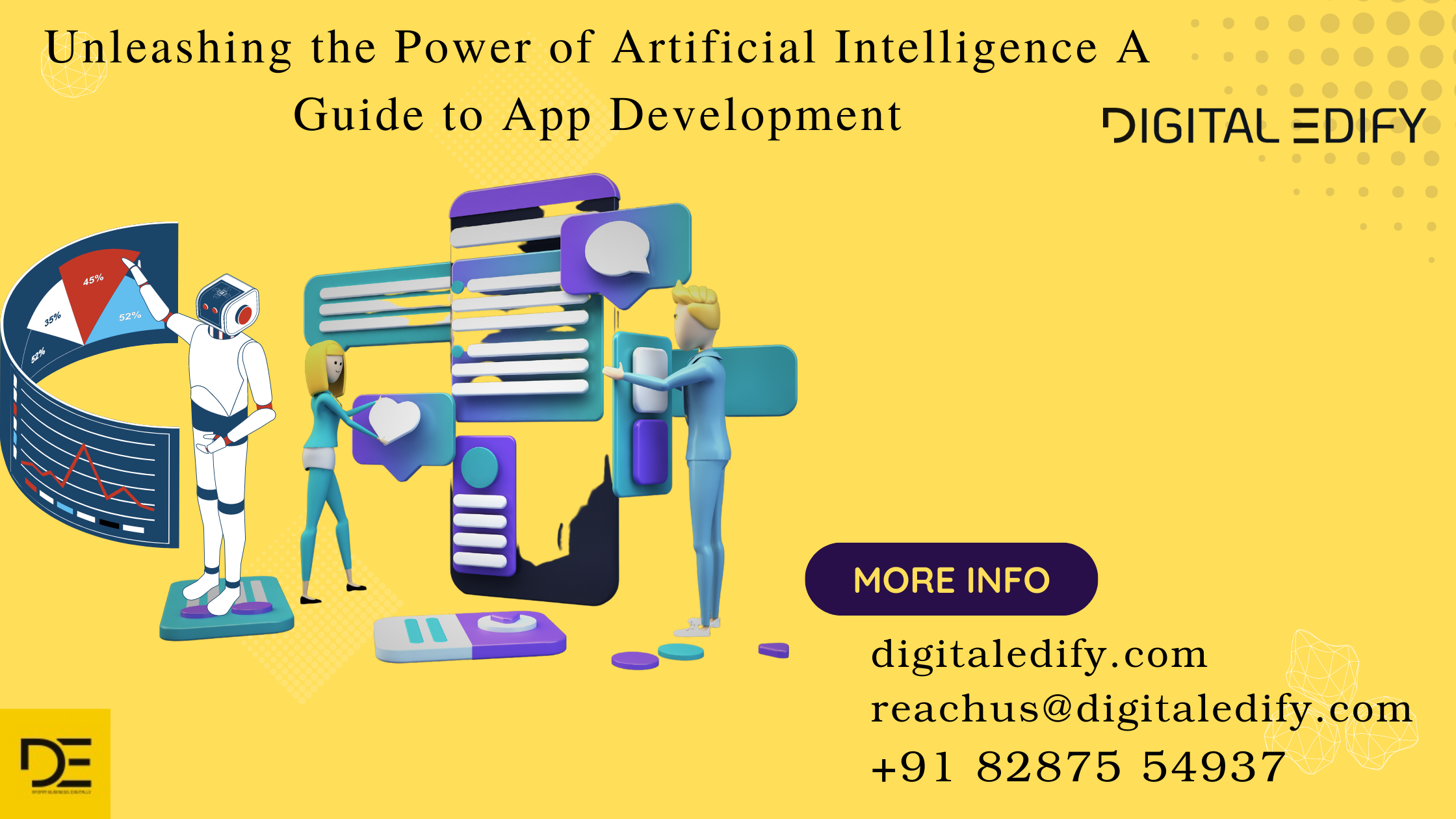Artificial Intelligence stands at the forefront, revolutionizing industries and transforming the way we interact with digital solutions. It has become a driving force behind many cutting-edge applications, bringing unprecedented capabilities and opportunities to businesses and individuals alike. In this blog, we will go deep into the world of artificial intelligence app development, exploring its potential, challenges, and the key steps to creating innovative AI-powered applications.
Understanding Artificial Intelligence
Artificial Intelligence refers to the simulation of human intelligence in machines, enabling them to perform tasks that typically require human cognitive abilities. It encompasses various techniques, including Machine Learning (ML), Natural Language Processing (NLP), Computer Vision, and more. These technologies allow these systems to learn from data, adapt to new information, and make informed decisions without explicit programming.
The Power of AI in App Development
Integrating AI into app development brings a myriad of advantages that can transform user experiences and business operations:
-
Personalization: Artificial intelligence enables apps to analyze user behaviour, preferences, and historical data to deliver personalized content and recommendations, creating a more engaging and tailored experience.
-
Automation: AI chatbot design and development apps can automate repetitive tasks, freeing up valuable human resources and improving overall efficiency.
-
Predictive Analytics: By analyzing large datasets, applications can predict user behaviour, market trends, and customer needs, empowering businesses to make data-driven decisions.
-
Natural Language Understanding: It permits apps to understand and respond to natural language inputs, enabling voice assistants and chatbots to communicate effectively with users.
-
Image and Object Recognition: Computer Vision capabilities enable apps to recognize and interpret images, leading to applications in augmented reality, security, and more.
-
Fraud Detection: Artificial intelligence can detect patterns of fraudulent activities, enhancing the security and trustworthiness of apps handling sensitive data.
Key Steps in AI App Development
-
Spot the issue:
Begin by defining the problem you want to solve or the functionality you wish to enhance using the latest technology. Understanding the specific goals of your app is crucial for the development process.
-
Data Collection and Preparation:
Algorithms powered by artificial intelligence rely on large and diverse datasets for training. Gather and pre-process relevant data to ensure its quality and suitability for the task.
-
Choose the proper technology:
Based on your app’s requirements, select the appropriate AI technology, whether it’s Machine Learning for predictive tasks, NLP for language processing, or computer vision for image recognition.
-
Model Training and Development:
Train your AI robot models with the help of the prepared data. This step involves fine-tuning the algorithms, testing different parameters, and optimizing performance.
-
Integration with the App:
Integrate the trained AI models into your application, ensuring smooth communication between AI components and other app functionalities.
-
User Interface and Experience:
Design an intuitive user interface that seamlessly incorporates features while providing a user-friendly experience.
-
Testing and Quality Assurance:
Thoroughly test the app to identify and fix any issues, ensuring that the functionalities work as intended and do not compromise app stability.
-
Deployment and Monitoring:
Launch the AI-powered app and closely monitor its performance. Continuously collect user feedback to make necessary improvements and updates.
Challenges and Considerations
While app development offers immense potential, developers should be aware of some challenges:
-
Algorithm Bias:
Models powered by artificial intelligence can inherit biases present in the training data, leading to unfair outcomes. Addressing algorithmic bias is crucial to maintain fairness and inclusivity.
-
Computational Resources:
Algorithms can be computationally intensive, requiring significant resources for training and inference, especially for complex tasks.
-
Ethical Concerns:
App developers should consider the ethical implications of their technology, ensuring responsible AI usage and adhering to ethical guidelines.
Artificial Intelligence app development has opened up a realm of possibilities, empowering businesses and individuals to harness the potential of it to solve complex problems, enhance user experiences, and drive innovation. By understanding the fundamentals of it, selecting the right technologies, and following a systematic development process, developers can create powerful and impactful AI-powered applications. However, it is essential to stay vigilant about ethical considerations and data privacy to ensure that artificial intelligence continues to be a force for positive change in the digital world. As this technology advances, we can look forward to even more exciting and transformative applications in the future.

Comments
Post a Comment